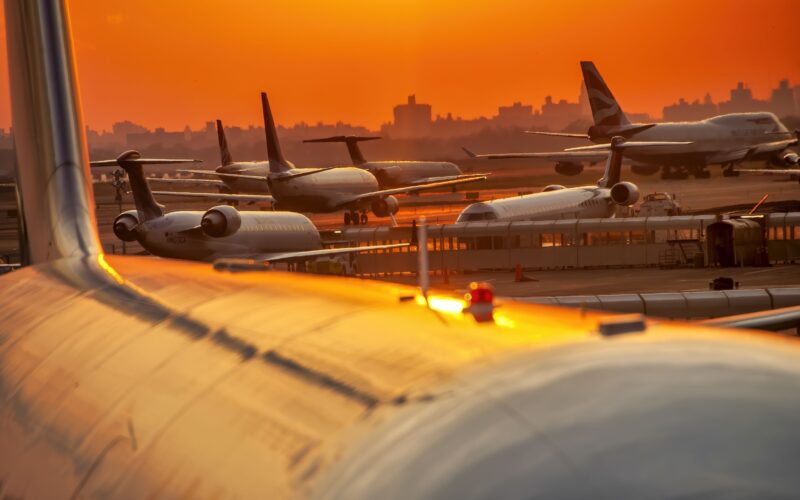The National Transportation Safety Board (NTSB) has found that interruptions and multitasking led to distractions that resulted in a near-collision incident between a Delta Air Lines and American Airlines aircraft at John F. Kennedy Airport (JFK) in New York earlier last year.
In a preliminary report released on June 4, 2024, the board detailed how those factors caused the three-member flight crew of a B777 airliner to mistakenly cross a runway occupied by another airplane taking off from the airport.
According to the report, air traffic controllers cleared a Delta Air Lines B-737, with 159 passengers and crew, for takeoff on Runway 4L at JFK in the evening of January 13, 2023.
Twenty seconds after the Delta 737 began its takeoff roll, an American Airlines B777 bound for London Heathrow Airport (LHR), carrying 149 passengers and crew, crossed the same runway without clearance.
Fortunately, as the Delta 737 accelerated down the runway, its Airport Surface Detection Equipment – Model X (ASDE-X) issued aural and visual alerts in the air traffic control tower, warning of a potential collision.
Five seconds after the alerts, the controller canceled the takeoff clearance for the Delta airplane, which quickly decelerated from its top speed of 121 mph as the AA 777 was crossing in front of it.
Investigators said that technology designed to prevent runway incursions alerted the air traffic controller of the danger of a collision. According to the NTSB, it recommended the idea of such a technology in 1991, which eventually led to the development of ASDE-X.
NTSB investigators cited numerous factors that contributed to the American Airlines captain’s mistake in continuing along the wrong taxiway and crossing the occupied runway without a clearance. These included interruptions and incidents of multitasking that were happening on the flight deck during critical moments of ground navigation.
Meanwhile, the other two flight crewmembers failed to catch the captain’s error because they were both engaged in tasks that diverted their visual attention from outside the airplane, the NTSB noted.
The investigation also found that the ground controller who provided the taxi instructions to the American B777 did not notice that the aircraft turned onto the wrong taxiway, because he was performing a “lesser priority task that involved looking down”.
The NTSB made the following safety recommendations to the Federal Aviation Administration (FAA) to address the risks identified in the investigation:
- Encourage flight crews to verbalize the number of the runway they are about to cross, unless an automated system already provides an advisory.
- Encourage air carriers to use their safety management systems to identify flight crew surface navigation errors and develop effective mitigation strategies.
- Evaluate the effectiveness of the activation logic for runway status light systems and update the logic as necessary to improve its effectiveness.
- Collaborate with aircraft and avionics manufacturers to develop a system that would alert flight crews of traffic on a runway or taxiway and traffic on approach to land, and require that both newly manufactured and existing transport category airplanes have such a system installed.
- Update a long-standing recommendation to require all airplanes be fitted with a cockpit voice recorder capable of recording the last 25 hours of audio.
- Additionally, the NTSB once again called on the FAA to require all airplanes be fitted with a cockpit voice recorder capable of recording the last 25 hours of audio, instead of the current standard of two hours.

